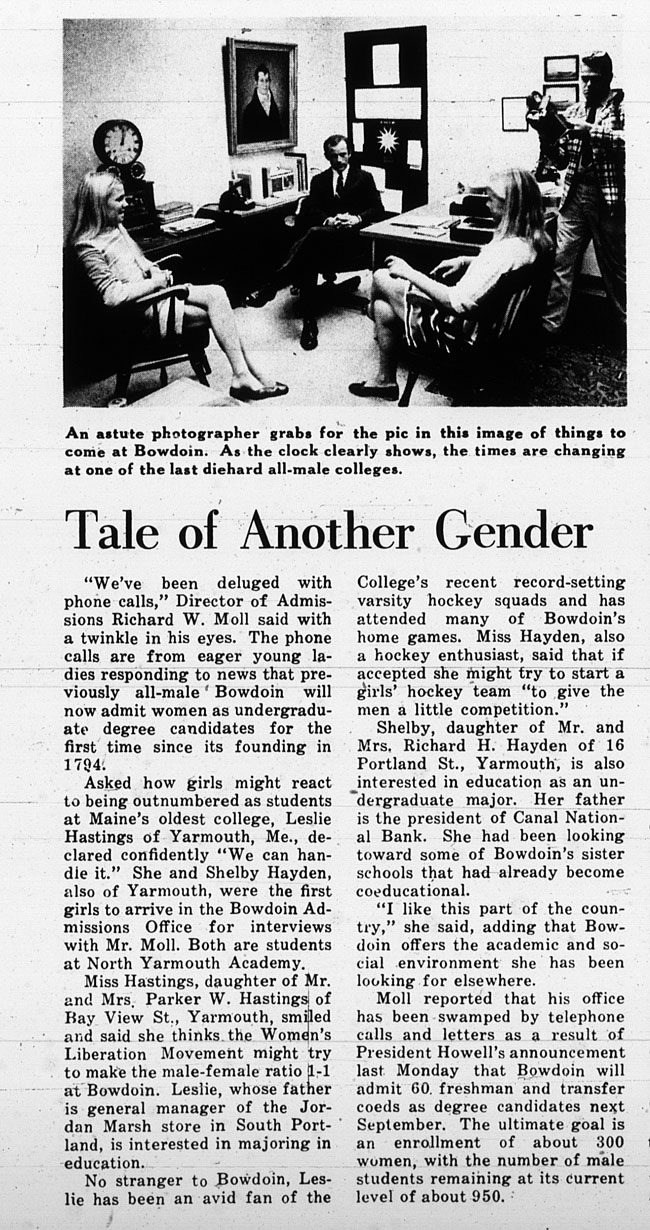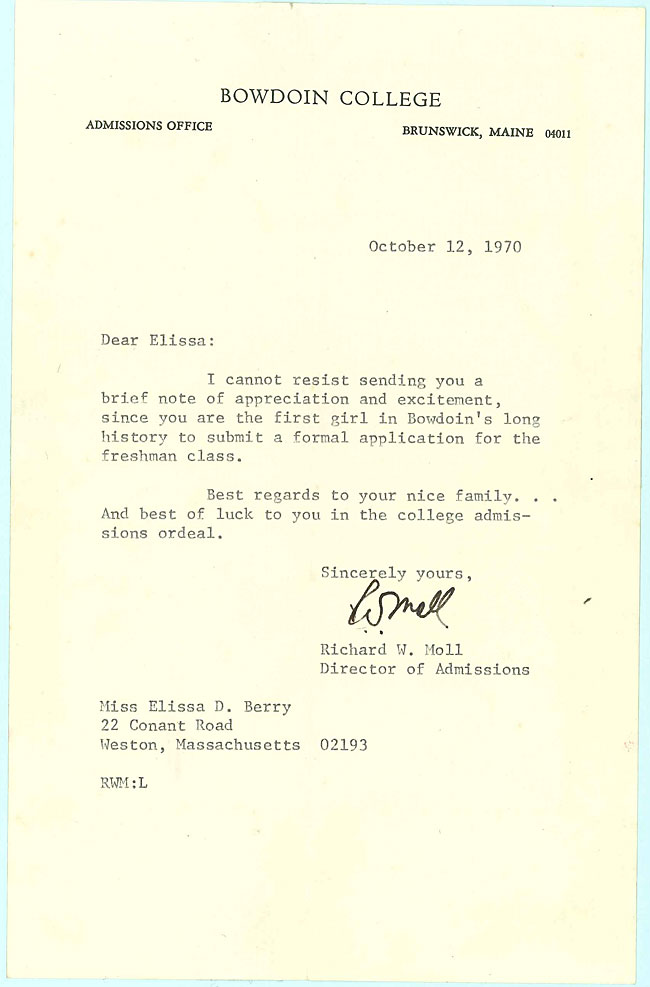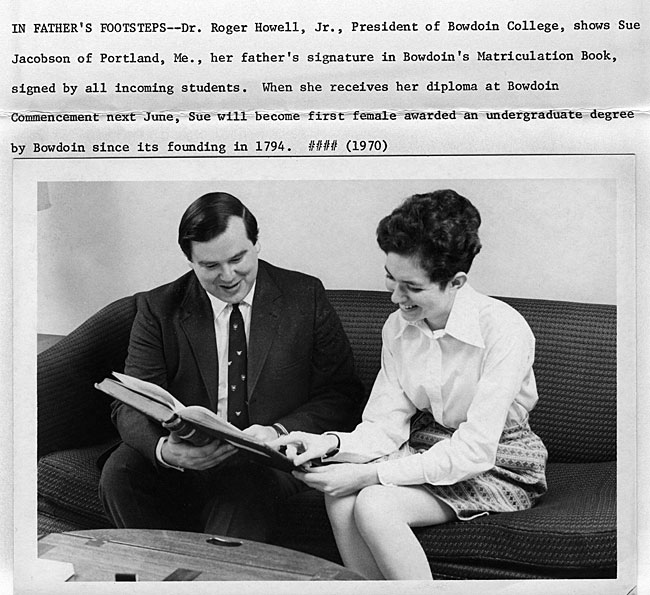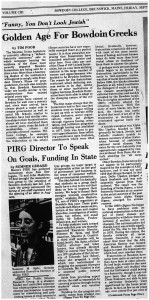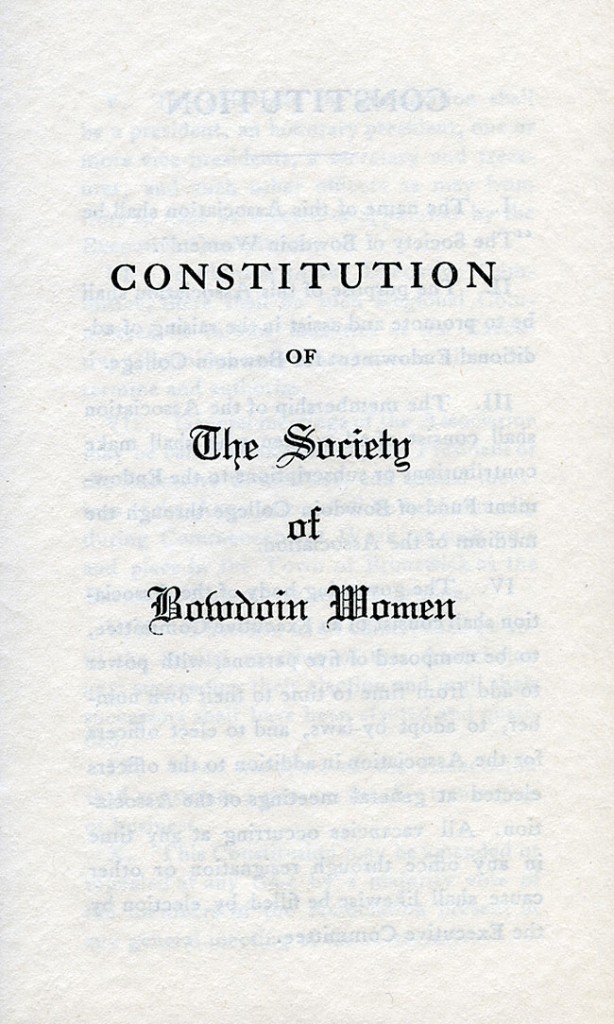On October 9, 1970, The Bowdoin Orient, Bowdoin’s student run newspaper interviewed two perspective first year students about Bowdoin College becoming coeducational. Titled “Tale of Another Gender” (Document GB, 16) the article discusses two women’s attitudes about Bowdoin becoming coeducational. Women were excited about the idea that Bowdoin was now admitting women students and responded confidently to issues that would arise due to being the first women admitted to this previously all-male institution. The two women interviewed in the article, Leslie Hastings and Shelby Hayden, are fans of this new coeducation and fans of Bowdoin as a whole.
Other colleges like Bowdoin were also pondering the question of becoming coeducational. Williams College and Rutgers University both began admitting women in 1971, and Dartmouth followed shortly after in 1972. Universities and colleges, along with Bowdoin were slowly beginning to make the change to becoming coeducational.
The picture above the article shows the image of changing times a Bowdoin, with women now applying for admission.
